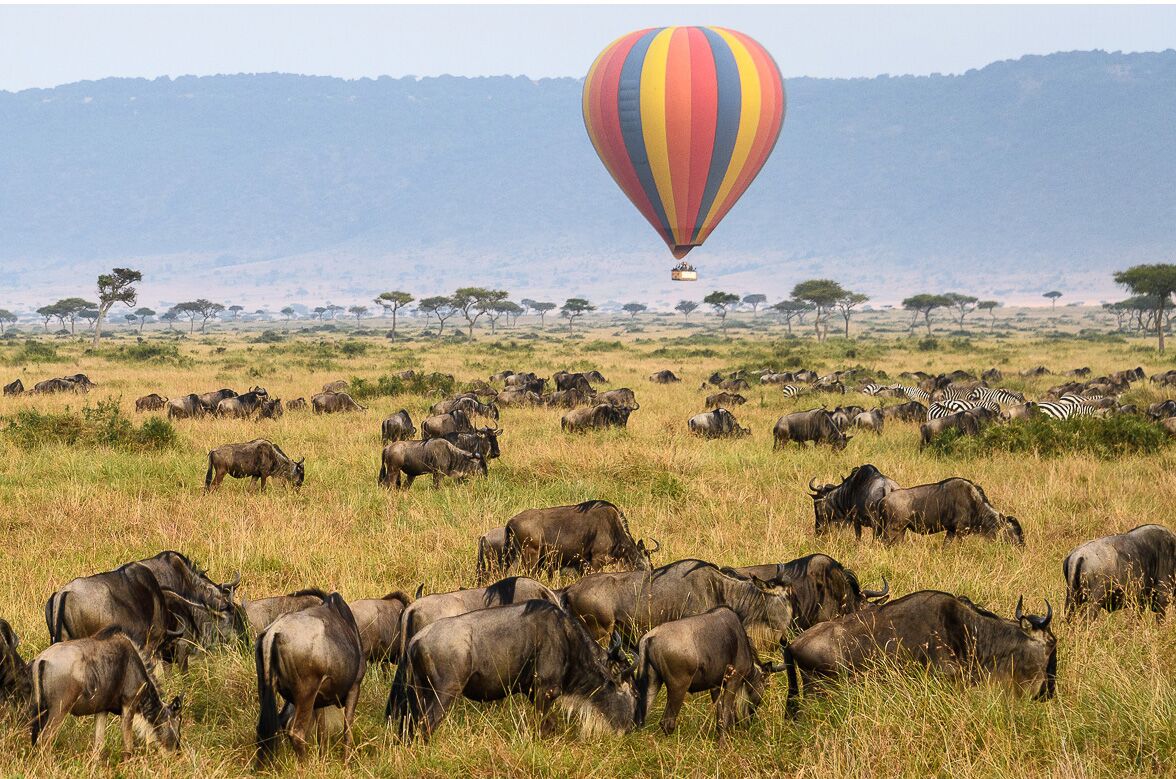Embarking on a safari in Tanzania is a dream come true for many travelers. From the majestic Serengeti to the breathtaking Ngorongoro Crater, Tanzania offers some of the best wildlife viewing in the world. However, to make the most of your safari experience, especially as a first-time visitor, it’s important to be well-prepared. Here are 11 essential Tanzania safari tips to help you plan and enjoy your adventure!
1. Choose the Right Time to Visit
Tanzania is a year-round safari destination, but the time of year you visit can significantly impact your experience. The dry season (June to October) is the best time for wildlife viewing, as animals gather around water sources, and vegetation is sparse, making it easier to spot them. However, if you want to witness the Great Migration, plan your trip between July and October when wildebeest cross the Mara River.
2. Pack Light but Smart
Packing for a safari can be tricky, as you’ll need to balance comfort with practicality. Safari lodges and camps often have laundry services, so you don’t need to overpack. Essentials include:
- Neutral-colored clothing (greens, browns, and khakis) to blend in with the environment.
- Layers for cooler mornings and evenings and hotter midday temperatures.
- Comfortable shoes for walking safaris and bush walks.
- A wide-brimmed hat and sunscreen to protect yourself from the sun.
3. Bring the Right Gear
Don’t forget the essentials that will enhance your safari experience. A good pair of binoculars is crucial for spotting animals from a distance. If you’re a photography enthusiast, a camera with a good zoom lens will allow you to capture incredible shots of wildlife. Also, remember to bring extra memory cards and batteries!
4. Get Vaccinated and Pack Medication
Before traveling to Tanzania, ensure you are up to date on vaccinations, including yellow fever, typhoid, and hepatitis A. Tanzania is a malaria-prone region, so you’ll also need to bring antimalarial medication. Additionally, pack a small first aid kit with items like insect repellent, pain relievers, antihistamines, and any prescription medication you may need.
5. Understand Safari Etiquette
Being respectful of both the wildlife and your fellow travelers is key to an enjoyable safari experience. Keep these etiquette tips in mind:
- Stay quiet during game drives to avoid scaring animals away.
- Never approach wildlife or leave your vehicle without your guide’s permission.
- Don’t litter and help preserve the natural beauty of the parks.
- Follow your guide’s instructions and respect their expertise—they know the animals’ behaviors and the environment.
6. Hire an Experienced Safari Guide
A knowledgeable guide can make or break your safari experience. Experienced guides know the best spots for wildlife viewing, can identify animal behaviors, and share valuable insights about the environment. They’ll also help ensure your safety throughout the trip. When booking your safari, look for companies with highly rated guides.
7. Choose the Right National Parks
Tanzania is home to a variety of national parks, each offering a unique experience. The Serengeti National Park is famous for the Great Migration, while Ngorongoro Crater is known for its high density of wildlife in a stunning setting. If you prefer more off-the-beaten-path locations, consider visiting Tarangire National Park, known for its large elephant herds, or Selous Game Reserve, one of the largest wildlife reserves in Africa.
8. Don’t Forget Your Travel Insurance
Safari adventures come with inherent risks, from wild animals to bumpy roads. It’s essential to have comprehensive travel insurance that covers medical emergencies, trip cancellations, lost luggage, and even evacuation. Be sure to choose a policy that covers all the activities you plan to do, including safaris and any adventurous excursions like climbing Mount Kilimanjaro.
9. Plan for the Costs
A Tanzania safari can be a costly adventure, but careful planning can help you get the most out of your budget. Costs to consider include:
- Park entry fees (which can be quite high in some parks).
- Lodging (ranging from budget-friendly campsites to luxurious lodges).
- Tipping (it’s customary to tip guides, drivers, and camp staff).
- Transportation, whether by road or charter flights between parks.
Plan your budget ahead of time to ensure a smooth and enjoyable trip.
10. Embrace the Unpredictability
One of the most exciting aspects of a safari is that it’s never the same twice. Nature is unpredictable, and you never know what you might see. You could witness a lion hunt, a herd of elephants at a watering hole, or a family of cheetahs lounging in the shade. However, you may also have days where wildlife is more elusive. Patience is key, and every game drive offers a unique experience, so embrace the surprises!
11. Respect the Local Culture
Tanzania is not just about wildlife—it’s also home to rich and diverse cultures. When visiting local communities, such as the Maasai or Hadza tribes, be respectful of their customs and traditions. Learn a few basic phrases in Swahili (Tanzania’s national language) to show your appreciation. For example, saying “Asante” (thank you) or “Jambo” (hello) can go a long way in creating positive interactions.
Conclusion
A Tanzania safari is a life-changing adventure, offering unforgettable encounters with nature’s most magnificent creatures and landscapes. With proper preparation, a respectful attitude, and a sense of adventure, you’ll have an incredible experience that will leave you with memories to cherish for years to come. By following these 11 essential tips, you’ll be well-prepared for your first Tanzanian safari and ready for the ultimate wildlife adventure!




